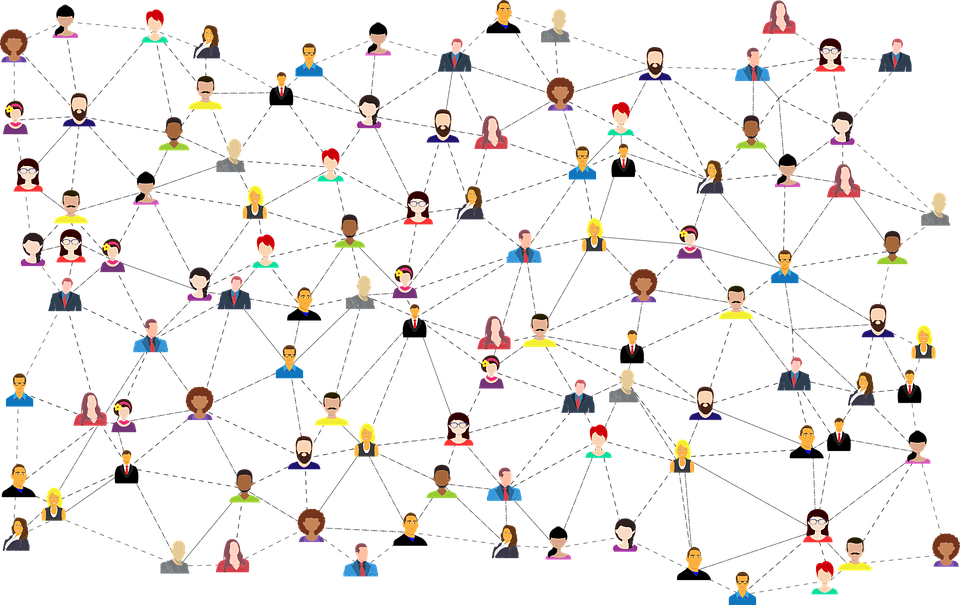Insights
Down With Networking—Let the “Relationship Building” Revolution Begin.

By Aubrey Quinn, Managing Director, Clyde Group
Clyde Group recently took a bold position on networking: we’re anti.
I know that might sound crazy, but after many conversations with junior employees, I have come to understand just how intimidating the word is to them. It suggests walking into an event filled with faces you don’t recognize, enthusiastically shaking hands, knowing all the right things to say to strangers, and magically coming away with a business card and a multi-million dollar deal. That style of networking doesn’t come naturally to most, especially not those just a year or two into their career.
So we’re done with networking. It no longer has a place at Clyde Group.
But you know what does? Building relationships. Treating people like people. Putting people first. Real relationships—the ones that lead to true partnerships—take time and energy. It’s not just “who you know”, but whether you’ve taken the time to build meaningful relationships that ultimately leads to doing great work together.
What’s in it for me?
Good relationships are good for business. The friends you make in college may end up leading communications for a tech startup 15 years later and come to you looking to hire a PR agency—this happened to me! But my friend would likely never have asked me for my opinion on good PR firms (ahem, mine!) if I hadn’t invested in and maintained our cross-country friendship.
Relationships aren’t just about winning clients, they’re also key to keeping them. If you want to make yourself indispensable, it takes more than just a winning pitch. You need a relationship built on providing consistently great work and incredible service. And the bonus is that if your point of contact ever moves on to a new role somewhere else, they’ll likely want to take you with them.
In PR, relationships can also be the difference between successfully placing a great story or coming up short. It’s not necessary (or possible) to become best friends with every journalist in the world, but you still need to treat them like human beings rather than just part of a transaction. Every interaction should be built on respect—that means getting to know journalists, reading up on their stories, and respecting their time by sparing them from junk pitches they’d never want to write about. Continually strengthen that relationship by making yourself a reliable source of genuinely helpful information and ideas.
There are benefits to this approach beyond just making your day-to-day life easier. I like to tell my team members that I hope they stay at Clyde Group forever. But should they decide to leave, their best opportunities are likely to come through someone they have a strong professional relationship with.
Where do I begin?
Clyde Group is based in Washington, D.C., where the phrase, “So what do you do?” is a standard conversation opener even with strangers. I say forget this question. I’m much more interested in learning about which podcasts someone listens to on their commute or if they spent the weekend binge-watching the latest season of G.L.O.W. like I did. Don’t think of it as “small talk”, but instead as finding natural ways to connect with and appreciate each other.
Don’t limit it to just shared interests—throw experiences into the mix as well. Ask yourself when was the last time you met a client or a contact outside the office and tried a new restaurant or food truck. Case in point for Clyde Group—a speakeasy recently popped up beneath our office, complete with an entrance hidden behind an oversized mirror, and I love taking clients there after meetings. It gets us talking about the most interesting bars and restaurants we’ve been to, and all of a sudden we’re best friends.
To quote Aaron Burr in Broadway’s “Hamilton”: “Talk less. Smile more.” Ask questions. Really get to know people. And then—this is key—remember what they’ve told you. Remember their kids’ names, their favorite sports teams, the last place they went on vacation. You’ll be amazed how much recalling these details helps you stand out in someone’s mind.
Once you’re feeling really brave, go ahead and talk to strangers. To be clear here, I am not naturally good at this. I once went to a happy hour where I didn’t know anyone. I did a lap around the venue, immediately threw up in the nearest bathroom, and then went back to my Airbnb where I hid the rest of the night. I know this is how networking makes a lot of people feel, so start with talking to one other person (I recommend finding anyone else who is hanging out alone). Chances are, they hate these events as much as you do and will really appreciate that someone approached them first.
In short, stop worrying about “networking” and start getting to know people. When you remember that on the other side of every relationship is a normal person, just like you, it’s amazing how much this “People First” approach to relationship building can change your career for the better.